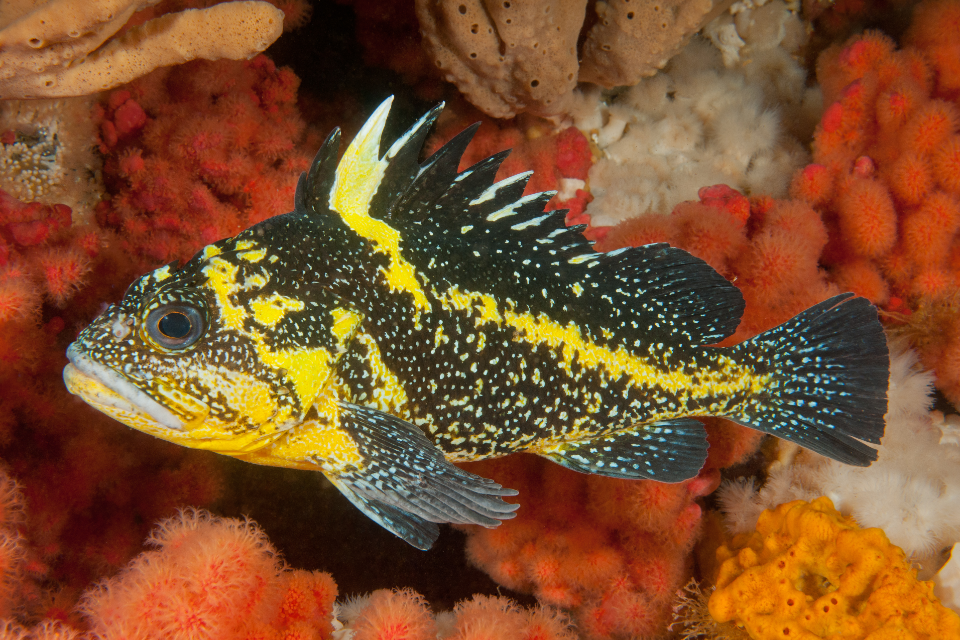What the extreme life span of rockfish means
- Dorothy Eggenberger

Aging is one of the big questions in biology and health sciences today as many health problems are rooted in aging. It is imperative to understand how aging happens at a genetic level.
University of Victoria biologist Gregory Owens and University of California, Berkley biologists went fishing for answers in the genetic makeup of Pacific Ocean rockfish, some of the longest-lived vertebrate species on the planet. In a new paper published in Science, they examine the genetic basis of life span variation in Pacific Ocean rockfish.
Q&A with Gregory Owens

Q. What makes the Pacific Ocean rockfish unique?
A. Rockfish have extreme variation in life span: from eleven to over 200 years. We wanted to find out what genes are needed to enable certain rockfish to live so long. We sequenced the genomes of 88 species of rockfish and did comparative methods to find which genes are associated with extreme life span.
Q. What did you find?
A. First, we found that size and habitat explain a lot of life span variation in fish. Think of a mouse versus an elephant—the elephant will live longer than the mouse, and similarly larger rockfish have a longer life span that their smaller counterparts. Also like in other animals, rockfish that dwelled in deeper, cooler waters lived longer as the habitat slows its metabolism.
We used a statistical technique to identify whether genes associated with life span were actually associated with size or depth, rather than life span itself. This allowed us to find the genes that direct affected long life span and not other things associated with longevity.
Q. Did you identify longevity genes?
A. We found that natural selection was acting on genes involved in DNA repair in long-lived species. Mutations can be drivers of cancer, so these DNA repair genes may reduce mutations and prevent cancer in old age.
But not all aged rockfish were the same. Rather than having identical genetic changes, each had its own personalized collection from this suite of genes—kind of like mixing and matching your subscription services. Additionally, we found life span associated variation in metabolism genes, including insulin signaling which is known to influence life span in a variety of other species.
Q. What are your next steps?
A. With our collaborators at U of C Berkley we developed a genomic resource: the complete genomes for 88 rockfish species. Now we would like to drill down to select species to examine their patterns of genetic diversity to see how adaptation happens in different rockfish. This may reveal how different rockfish species evolved and inform future management efforts to protect this important marine resource.
For more on the rockfish gene story, listen to Gregory Owens on the Science podcast or find out more on UC Berkley News.


